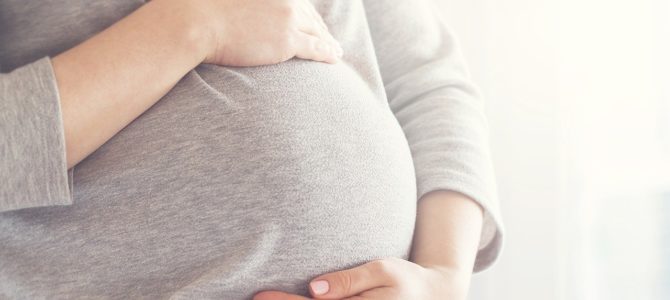
I have degrees in health policy and bioethics. I have worked for the U.S. Food and Drug Administration. My husband is a physician in the U.S. Navy. Our two children are up-to-date on all of their vaccines per the American Academy of Pediatrics schedule. While we tend to be somewhat “crunchy” with our dietary and household product choices, we have by-and-large embraced modern medicine as a good thing.
As a physician, my husband was part of the “first tier” eligible for a COVID-19 vaccine and got his shots in February. By the time the powers-that-be in California (where we are stationed) deemed vaccines available to my “tier,” I had found out that I was newly pregnant.
With an eight-week miscarriage in my past, there was no way I was going to get vaccinated that early on with a shot still under Emergency Use Authorization and that was explicitly not tested on pregnant women, no matter what the experts said (which, at the time, was muddled advice at best, with somewhat different recommendations from the World Health Organization, the American College of Obstetricians and Gynecologists, the Centers for Disease Control, and the U.S. Food and Drug Administration).
At first, the Johnson and Johnson vaccine seemed it might be the best option for pregnant women, given that it’s a traditional vaccine. Until, of course, the blood clot scare happened, which I would wager immediately put many pregnant women, myself included, off the scent. We are, after all, already at an increased risk for blood clots just by virtue of being pregnant. Plus, it’s the least effective of the bunch. As a pregnant mother, are you going to take those risks — however small — for a second-rate product? I opted “no.”
Despite no consensus of new, peer-reviewed clinical data on pregnant women and the vaccine, seemingly overnight all of the major health authorities suddenly coalesced from their muddled opinions into a united front, and started urging pregnant women to get the shots. Indeed, emerging data from various population-based databases was (and continues to be) encouraging on the safety of the vaccine in pregnancy, but anyone who knows anything about public health databases like the Vaccine Adverse Event Reporting System (VAERS) also knows that their data have to be taken with a few hefty pinches of salt.
What’s more, the health authorities who manage those databases and run all of our major health institutions are not actually urging pregnant “women” to get vaccinated, but pregnant “people.” That’s right, “people,” because as we are reminded again and again by the highest and purportedly best medical authorities in the land, “Women aren’t the only ones who can get pregnant, you know.”
These authorities who are seemingly incapable of accepting the very basics of human anatomy and biology are the same ones in utter hysterics over Texas’s heartbeat law. They assure me they will continue to fight for my “right” to dispose of the child within my womb, no matter the reason, and no matter the cost. They insist she is only a human person worthy of protection from bodily harm if and when I decide that she is — which, of course, is subject to change based upon my individual situation and preferences until she has fully exited my womb (and as some would have it, not even then).
So, if you want to know why I, at nearly 30 weeks pregnant and married to a fully vaccinated doctor, am not yet vaccinated against COVID-19, suffice it to say that I have determined there is a possibility that our major health institutions might not have my unborn daughter’s best interests at heart. They, after all, would neither admit that she is a human nor a girl at this point.
At 30 years old, with a thus-far uncomplicated pregnancy, no comorbidities, and a healthy BMI pre-pregnancy, I have made the calculus that for me and my daughter, the unknown risks of the vaccine might still outweigh the risks of a COVID infection. It’s a gamble — and I don’t have my heels dug in so ideologically that I won’t change my mind about vaccination if I develop a complication that would further depress my chances of surviving a COVID infection while pregnant or postpartum — but that is where I currently stand.
In addition, the data about low vaccination rates among pregnant women indicates that there are many, many other mothers out there who have made the same calculation.









